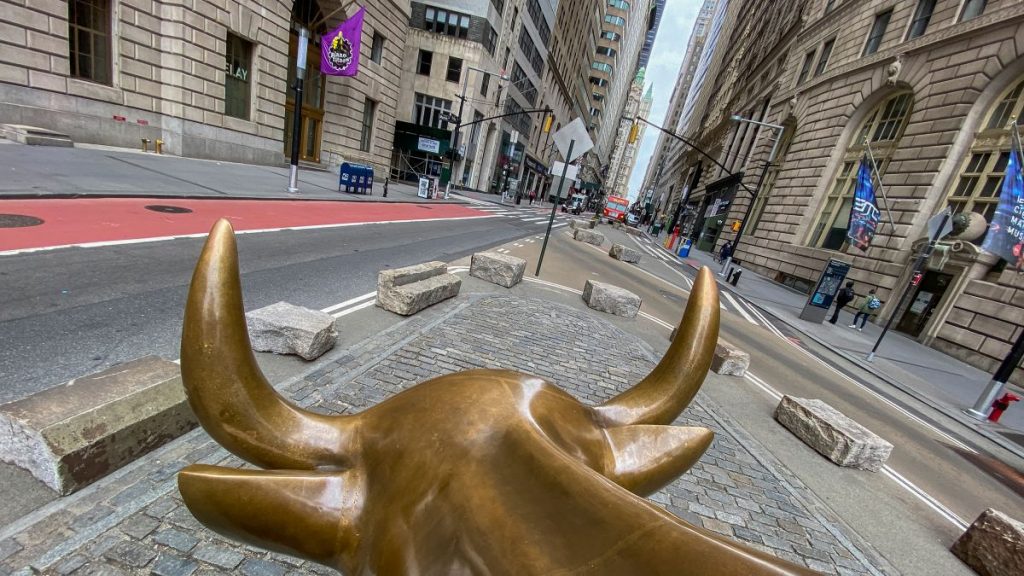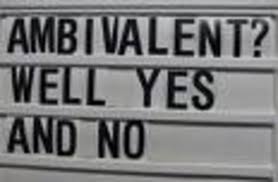Two peoples, separated by a common language, gaping and gasping at each others’ stupidity across the ocean blue:
There’s been perfectly understandable confusion expressed here, by more than one commentator, wondering why the British Parliament doesn’t just ‘cancel’ Brexit. The sheer weight of evidence showing how damaging any form of it will be is so clear, the level of corruption (including foreign funding and meddling) surrounding the 2016 Referendum is so obvious, the scale of the divisions it will leave in British society are so terrifying – why on earth are the democratically elected representatives of the British people still going ahead with it in the face of all that? What’s wrong with them? Why do the British people stand for it?
It’s a fair question, so let me answer it with another question.
Given the huge damage that the Trump Administration is doing to America, and given that the level of corruption (including foreign funding and meddling) surrounding the 2016 Election is so obvious, and given that the scale of division Trumpism is causing in American society is so terrifying, why on earth haven’t the democratically elected representatives of the American people done the right and obvious thing and removed the Gelatinous Orange Pustule from office? What’s wrong with them? Why do the American people stand for it?
In both cases, it’s the same sad boringly predictable answer. The people who want to stop it are a majority within the country, and they might be a majority within the Legislative branch, but they are not a majority within the Governing Party. While the minority Party, which does have a (large) majority in favour of stopping the whole shit-parade, is a MINORITY, with a small minority of members within it (some of them in pretty senior posts) who don’t really want to stop it. It can’t force or win a vote to stop anything without substantial crossover support from members of the Governing Party, and the members of the Governing Party who think it should be stopped will not give that support unless they absolutely and unavoidably have to in order to save their own skins. They won’t even loan their votes to slowing it down unless they’re face to face with a sharp-fanged decision-point that they can’t avoid, and as soon as that vote has taken place it’s straight back into Line of Battle and clocks are reset to zero.
Another obvious question, given the relatively simple proposition that Anything Else > This Parade of Gobshittery, is why there isn’t a majority within the Governing Parties to stop Brexit/dump Trump? Or, more realistically, why won’t the minority of elected members of the Governing Party who believe it/he should be stopped/dumped join with the minority Party to make it happen? Again, it’s the same answer for both countries. Fear. The very real and well-supported fear these elected representatives have of losing their access to high-status positions and post-politics employment in the ‘Studfarm for Past Favours’ sector if they don’t stick to the Party line; either through being deselected by the radicalised membership of their local Party branch, or by being denied electoral funding by the Party leadership.
How did seeing through Brexit/protecting Trump become unchallengeable Party policy? Well, that’s the result of decisions made earlier. They put themselves in this position through being half as smart and twice as cowardly as they thought they were. In the case of the Tory Party it was the decision to put a referendum on E.U. membership into its 2015 manifesto in order to finally lance the boil of Europhobic bastardy and give the slightly less insane leadership room to move on the European stage, a decision which blew up in Cameron’s face when the national vote of his Liberal-Democrat Coalition partners (who he was banking on to veto the idea of a referendum for him once they returned to office) completely cratered and the Tories actually became a majority Government with an obligation to meet their manifesto promises. While for the Republicans it was the decision to go all-in on Total Obstruction and White Power in the face of Obama’s tyrannical melanin levels, which led directly to the popularity amongst GOP Primary voters of the Birther-in-Chief and the mainstreaming of his brand of sneering, liberal-baiting racism.
Once those twin errors had achieved electoral ‘success’ the Parties were trapped within the ideological cages they represented. Cameron had to have a Referendum, the GOP had to have Trump as their candidate. Both were destructive decisions based at their inception on maintaining internal party-political unity at all costs, screw the greater good, but both were errors the respective Party leaderships thought they could get away with once the voting public – rather than the extremists within the Party electorate – got a good look at the reality of what they were offering. No one would be stupid enough to actually vote Leave/elect Trump, would they?
(Insert image of surprised looking bear crouched behind a woodland bush reading a newspaper with a prominent “Is the Pope Catholic?” headline)
Enter Fake News and illegally funded campaigns aimed at leveraging widescale public fear of changing socio-economic realities and the ever-pulsing vein of white racism into a multi-tool for getting people to vote against ‘something’, against ‘anything’, against every bloody thing that pissed them off, because it was all THEIR fault and THEY needed to be taught a lesson. Enter compliant and complicit Media entities that wanted the drama and the controversy, that were so fixated on ginning up an eyeball-dragging horserace that they were quite willing to overlook overwhelming evidence of cheating on behalf of the ‘underdogs’ if it made for sellable conflict. In Britain, as in America, established and provable facts were put in the dock alongside barefaced lies and debunked conspiracy theories, with ‘so-called experts’ forced to justify and explain their entire field of expertise in 30 second soundbites while spittle-flecked nutcases in red, white and blue romper-suits were given uninterrupted airtime to puke-funnel any damned thing they wanted into the bemused face of a general public that were less informed at the conclusion of campaigning than they’d been at the start.
In the end the loudest shouters won. And while their shocked enablers in the establishment media turned all of their time and energy towards sending expeditions of bead-and-button carrying urban sophisticates out into the Wild to bring back precious recordings of the sacred ways and eternal truths underpinning the unspoilt, rough-hewn and not-at-all racist Homo Sal-in-Terra cultures who had delivered these electorally narrow but also – in a sensuously metaphysical sense that just flicked the hell out of every savvy, everything you know is wrong bean in the infotainment industry – somehow incredibly portentous and paradigm-shifting victories at the polls for White Suprema…(Editor’s Note – Are you sure you meant to say this?) …..Working-Class Populism, the Parties found themselves lumbered with the job of translating the cut-and-pasted ravings of comment section misanthropes into national and international policy. The ambitious and the deeply stupid flocked forward to take up the challenge, while the guilty sloped away to hurriedly change their shoes and deny in indignant tones any responsibility whatsoever for tracking bull-shit over the nation’s creamy carpets.
In both cases what we’ve had since is the result of putting nearly unfettered power over the nation’s present and future into the hands of utter fuckwits; people who achieved prominence in the field of fuckwittery by steadily building up a portfolio of crass stupidity, whining victimhood and uninformed wrongness for all to see, taking the retrograde side of every argument and proving themselves suitable for no post more challenging than bringing up the rear in a Human Centipede. But these are the people with the whip-hand in our respective Governments. We’ve got Brexiteers and you’ve got Freedom Caucus types. They may not have the numbers, but they’ve been empowered by their Party leaderships to set the terms of acceptable debate and that’s what’s killed any hopes of good government or compromise. It’s their way or… well… that’s your only option. They’ve been reborn as avatars on Earth for the Dark Lord Willadapeepul and their Word is Law. With the Right-Wing Media providing the songbook and the establishment Media happily humming along to the chorus their malicious lunacy has been given an unearned patina of plain-spoken common-sense and amplified across the nation with a result similar to sticking a trumpet up a hippo’s arse – it’s noisy, the shit goes everywhere and only the deeply kinky are smiling.
So, basically, neither of our countries can have nice things because the Parties in Government are in the grip of ideological tractor-beams dragging them further and further away from reality, and the Media are either leading the way on behalf of their Europhobic publishers or are happy to go with them in pursuit of ratings and promotions. What this means over here is that, as the prospect of Brexit begins to resemble the ‘Libera te tutemet ex inferis’ scene from ‘Event Horizon’, the nutters are digging in their heels and making the choice for anti-Brexit Conservatives stark. They either break with the Party whip and grab onto the next available life-raft, whether that means backing a confirmatory referendum on May’s deal, revoking Article 50, or backing a Labour vote of no-confidence in the Government to force a General Election. They are the only people who can stop this, but in doing so they’ll break their Party for a generation and probably never win elected office again.
It’s in their hands. Even Theresa May says so.










